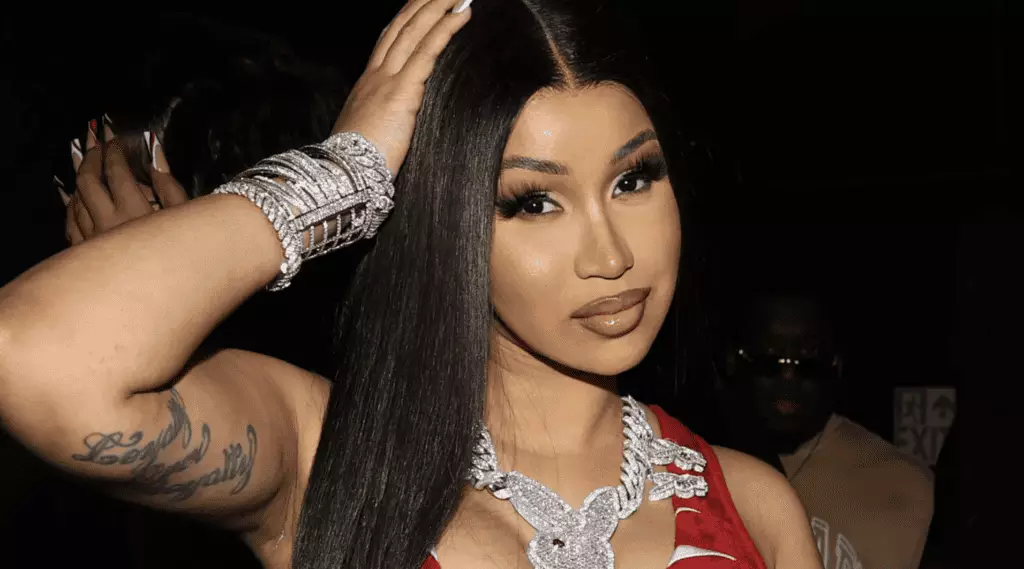In the ever-evolving world of cryptocurrencies, meme coins have taken center stage, fueled not only by internet culture but also by celebrity endorsements. The case of Cardi B promoting a new meme coin, provocatively named $WAP after her iconic song, raises critical questions about the legitimacy and security of such promotions. As cryptocurrencies become more mainstream, the intersection of celebrity branding and digital currency creates both opportunities and risks for unsuspecting fans and investors alike.
On October 7, Cardi B made headlines with a seemingly innocent post on X (formerly Twitter), introducing her followers to a new feline friend. Yet, within hours, her tone shifted from lightheartedness to marketing, raising red flags. The tweet that officially launched the promotion included not just the cat’s name—$WAP—but also a cryptocurrency wallet address and an animated video promoting the coin. However, experts from cybersecurity firm Peckshield immediately raised alarms, suggesting that Cardi’s account could have been compromised. They urged the public to exercise caution, effectively foreshadowing the potential pitfalls of this meme coin.
This incident highlights a broader issue within the cryptocurrency domain: celebrity accounts can be susceptible to hacking, which can lead to the dissemination of misleading or fraudulent information. Cardi B, whose legal name is Belcalis Marlenis Almanzar, is a high-profile individual whose influence could easily amplify the consequences of a compromised account. Such incidents exemplify the need for enhanced security measures, both for celebrities and their followers, who may unwittingly fall victim to scams.
The Mechanics of Trust and Skepticism
The crypto community’s response to Cardi B’s promotion is a mixture of intrigue and skepticism. While the idea of a meme coin associated with a pop culture icon might entice some, it also triggers veteran investors’ instincts for caution. Reports surfaced from crypto tracker CryptoRugMunch, revealing that the top 200 wallets holding $WAP were newly created and largely funded by larger wallets from within the project itself. This phenomenon raises suspicions about a potential “rug pull”—a scam where the creators of a project drain liquidity and disappear, leaving investors with valueless tokens.
As one might expect, the financial metrics around $WAP paint a picture of volatility. At the time of observation, the coin showed impressive total liquidity of $548,000 and a fully diluted valuation (FDV) of $17.6 million, alongside a price surge of $0.01766. Nonetheless, these numbers are insufficient to quell the clouds of doubt hanging over the project’s authenticity, especially considering the wave of similar celebrity-backed coins that have ultimately spiraled into scandals.
Adding to the complexity, crypto influencer Ansem weighed in on the situation, calling Cardi B’s initial post “CAT SZN,” gaining him attention and further complicating the dialogue around $WAP. With a substantial following exceeding half a million on X, Ansem’s voice carries significant weight. However, his history of promoting low-cap meme coins has drawn scrutiny, particularly from blockchain investigator ZachXBT, who highlighted the dangers these endorsements pose to retail investors.
This scenario underscores an alarming pattern where followers of influencers may feel compelled to invest based solely on celebrity endorsements, often overlooking the critical research and due diligence that accompany sound investment practices. The tangled relationship between influencers and crypto assets reflects a broader cultural phenomenon where trust can be precariously based on popularity rather than verification and transparency.
As the digital currency landscape grows increasingly populated with celebrities stepping into the spotlight, the question remains: can they responsibly navigate this space? The promotional activities surrounding Cardi B and her $WAP coin offer a cautionary tale for both celebrities and consumers. Without a solid foundation of trust, clarity, and security, the alignment of fame and finance risks more than just reputation. It poses real financial threats to fans who may be lured into investing based on a fleeting moment of celebrity influence.
In a world where memes wield power over investment behavior, the responsibility lies not just with the celebrities but also with their audience. The rise of meme coins, when intertwined with personal branding and social media dynamics, demands a scrutinous eye to separate genuine opportunity from the shadows of scams. The journey ahead will require ongoing vigilance, enhanced security practices, and a commitment to educating both influencers and their audiences on the realities of cryptocurrency investments.

